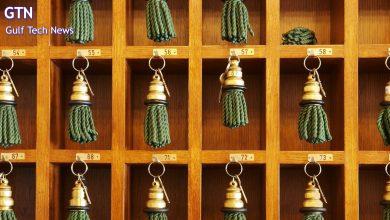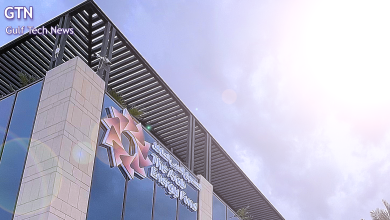Cleveland Clinic Abu Dhabi performs first robotic bilateral kidney transplant from deceased donor

- Bilateral kidney transplant involves transplanting two kidneys from a deceased donor to the recipient.
- As the first multi-organ transplant facility in the UAE, Cleveland Clinic Abu Dhabi has performed over 700 transplants since 2017
- The hospital previously conducted the first simultaneous kidney transplant using one robot for both donor and recipient.
Cleveland Clinic Abu Dhabi, part of the M42 group, has successfully performed the UAE’s first robotic bilateral kidney transplant from a deceased donor, marking a groundbreaking achievement in the region’s healthcare sector.
The transplant involved the simultaneous transplantation of two kidneys from a single deceased donor on a 78-year-old Emirati patient suffering from end-stage renal disease, who had been on hemodialysis for three years prior to the surgery.
Unlike traditional kidney transplants, which typically involves a single kidney, a bilateral approach was necessary in this case because each donor kidney alone did not provide enough function to sustain the patient’s metabolic needs.
By transplanting both kidneys, the physicians were able to optimize the patient’s renal function, a critical factor in his overall recovery and long-term health. The technique is particularly beneficial in cases where the donor kidneys are smaller or have reduced individual function, which can sometimes occur in deceased organ donors.
Dr. Georges-Pascal Haber, CEO of Cleveland Clinic Abu Dhabi, expressed pride in the team’s accomplishment and the hospital’s role as a leader in medical innovation. “The successful execution of this robotic bilateral kidney transplant highlights our commitment to delivering world-class care and pushing the boundaries of medical excellence.
The procedure is not only a significant milestone for Cleveland Clinic Abu Dhabi but also for the entire region. We are proud to offer our patients access to the most advanced surgical techniques, which will undoubtedly improve their quality of life,” said Dr. Haber.
The use of robotic-assisted technology in this complex procedure has set a new benchmark in transplant surgery, providing patients a less invasive option, reduced recovery time, and enhanced long-term outcomes. After facing multiple complications during dialysis, the patient is now demonstrating significant signs of recovery following the surgery.
Dr. Bashir Sankari, Institute Chair of Urology at Cleveland Clinic Abu Dhabi, who led the procedure, emphasized the significance of this latest advancement and said: “After several breakthroughs in the realm of kidney transplants, we have taken another important step forward with the introduction of robotic bilateral kidney transplantation.
This technique allows us to optimize the patient’s renal function by transplanting two kidneys simultaneously and provides the potential for greater longevity and improved outcomes for patients who might otherwise face compromised organ function.
At Cleveland Clinic Abu Dhabi, we are constantly pushing the boundaries of medical innovation to find newer, more effective ways to improve patient outcomes. By leveraging our multidisciplinary expertise and cutting-edge technology, we continue to set new standards in care, always striving to enhance the quality of life for our patients.”
Dr. Mohamed Eltemamy, lead robotic surgeon at Cleveland Clinic, Ohio said, “Robotic bilateral kidney transplantation represents a significant advancement in transplantation, expanding the donor pool and reducing waiting times. The robotic technique offers enhanced precision, magnified 3D HD vision, and flexibility, allowing us to perform the procedure through a single small incision, rather than multiple large ones. This leads to better outcomes, quicker recovery, and a more efficient transplant process.”
The use of robotics also offers high-definition, 3D visualization of the surgical site, providing the transplant team with unparalleled accuracy in positioning the kidneys, as well as in connecting the blood vessels and urinary tract.
The minimally invasive nature of the surgery significantly reduces the risk of infection and postoperative complications, which are common in traditional transplant procedures.
The patient, who had been managing secondary diabetes mellitus in addition to his renal disease, was considered a high-risk candidate for traditional open surgery.
The robotic bilateral kidney transplant provided an opportunity to address his renal failure in a manner that minimized the potential risks associated with larger, more invasive surgical procedures. Just days after the surgery, the patient was discharged from the hospital sooner than if he had undergone a conventional transplant.
Cleveland Clinic Abu Dhabi’s success with this robotic procedure is part of its broader commitment to using cutting-edge technologies to provide the highest standards of care.
The hospital has been at the forefront of integrating robotic technology across a range of specialties, including urology, cardiac surgery, and oncology, positioning itself as a regional leader in minimally invasive surgical techniques.
The hospital has so far performed over 700 transplants with 310 kidney transplants since the launch of the transplant program in 2017.
As the first and the only multi-organ transplant facility in the UAE, the hospital had previously performed the first simultaneous kidney transplant for donor and recipient using one robot along with the first ‘triple kidney swap’, where the hospital completed three simultaneous transplants as part of the Paired Kidney Donation Program.
With the successful completion of this robotic bilateral kidney transplant, Cleveland Clinic Abu Dhabi continues to pave the way for the future of transplant surgery, offering hope to patients suffering from organ failure who are in need of life-saving procedures.
The hospital’s leadership in this area reinforces its position as a global healthcare destination, providing the best care to patients close to home.




